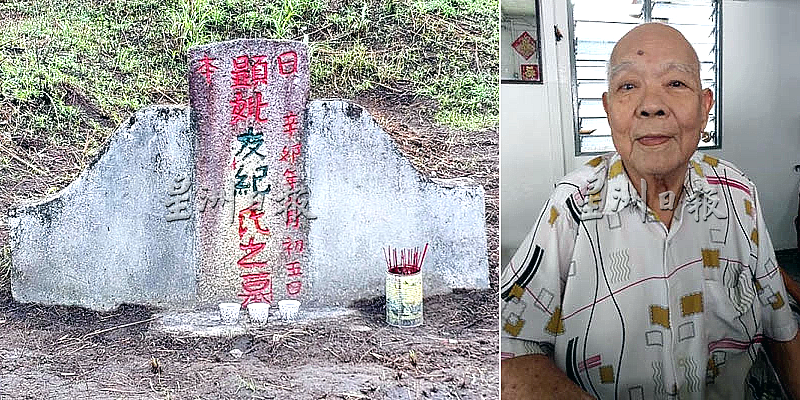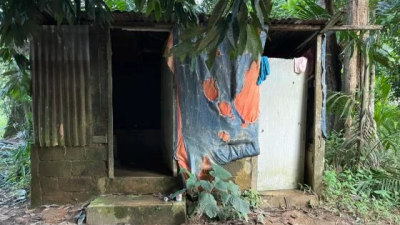KERIAN: Until today, local residents still pay tribute to a Japanese woman during the annual Cheng Meng festival, as she was helpful to the locals during World War II.
Single woman Yuki Yamasaki died on September 5, 1951 and was buried at the Chinese cemetery located along Jalan Kerian Semanggol by local leaders.
Yuki was living in Bagan Serai for more than ten years, according to Khong Koing Chew, chairman of Kwong Kheow Seah, an organization looking after the Chinese cemeteries in the area.
She was in Bagan Serai before the Japanese Occupation and subsequently became a mediator between the Japanese troops and the local residents.
Many communal disputes were resolved and incidents of Japanese troops torturing the locals were unheard of because of her mediation effort.

Khong said his 91-year-old uncle used to be a student at Yuki’s Japanese class for three days.
“My uncle still can recall Yuki wearing a kimono while conducting the Japanese class. She was very particular about manners and all the students had to bow to her before entering the class. Students who did not abide by the rules would be punished,” he said.
Khong said his uncle only attended the class for three days, as the Japanese troops surrendered.
Yuki continued to live in Bagan Serai and did not return to Japan, he said, adding that Yuki was later adopted by a local businessmen where she taught the businessman’s three daughters Japanese.
The locals were grateful to Yuki as she mediated to rescue a group of children from the Japanese soldiers.
The locals would visit Yuki’s grave during Cheng Meng festival as she had no relatives here and the younger generation of several local families continued with the practice of praying to her during Cheng Meng.
Khong said he heard about Yuki’s story but could not locate her grave until this year when he played Buddhist chants in Japanese.
After discovering Yuki’s grave, Khong repainted it for easy identification, as the cemetery has more than 1,000 graves with 70% of old graves unvisited by the descendants.
Khong also said several of Yuki’s students had just passed away recently.
ADVERTISEMENT
ADVERTISEMENT


































